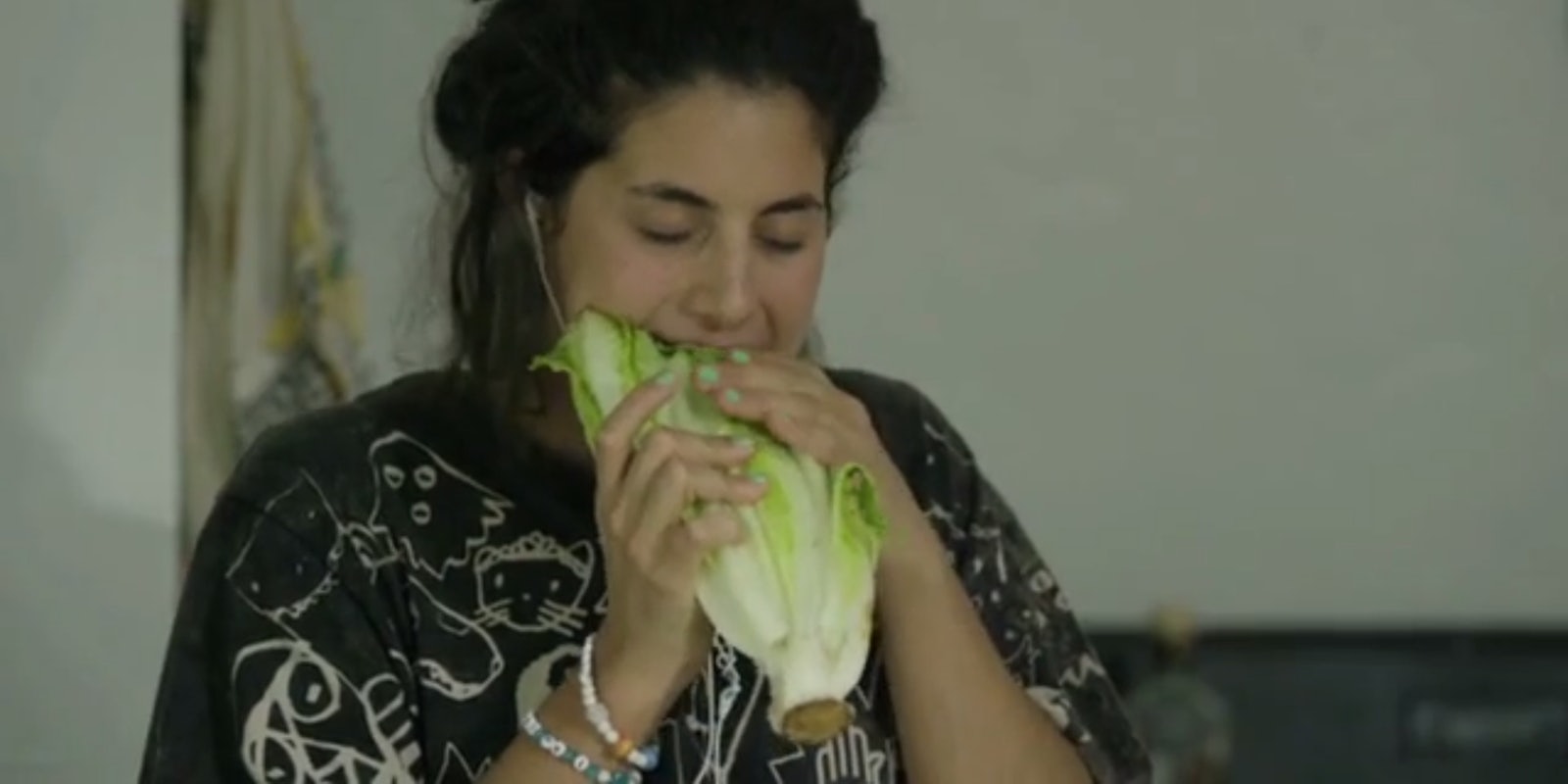In an era where Kim Kardashian’s rear-end is worshiped and Beyoncé is lauded for her curves, pressures still abound for women to slim down and get a body that’s “just right.” According to the National Eating Disorders Association, “20 million women and 10 million men suffer from a clinically significant eating disorder at some time in their life” in the United States alone. But media and entertainment attention on the prevalence of eating disorders is slim to nil these days.
Jessie Kahnweiler, creator and star of new webseries The Skinny, wants to change that. Kahnweiler, best known for the hilarious and heartbreaking short, “Meet My Rapist,” hopes to share her story in a way that’s both entertaining and empowering. The series, which features big names such as Allan Rich and Ileana Douglas, has been shot in its entirety, but Kahnweiler recently launched a Kickstarter to help fund the final post-production costs necessary so this little gem can meet its audience.
Kahnweiler spoke to the Daily Dot about her personal struggle with bulimia, her inspiration for the series, and what a real “plus-size” woman looks like.
You’ve shared that you’ve struggled with bulimia for a very long time. What made you want to create the series at this specific time? Why now?
I didn’t necessarily want to make it, but I got to the point where I couldn’t not make it. This topic is so much bigger than me. Having gone through this, I realize it’s a crazy taboo. Being a woman and a filmmaker, I had gone through this whole experience and felt like it was nowhere to be found in entertainment or media. We live in a time where we’re so open about drugs and sex, but there’s nothing out there about this.
For a while I felt like I couldn’t talk about the fact that I’m bulimic because I’m not Princess Diana. I thought, I’m not skinny. I’m not skinny enough. I don’t have an eating disorder in the right way. I’m not Princess Diana; I’m not Natalie Portman in Black Swan. I think the shame kept me from sharing for so long.
How did you prepare for the series? Did you do a lot of research, or were you working from more of a personal narrative?
Shit, I probably should have done that, huh? (Laughs)
Honestly just living in L.A., I did a lot of hands-on research just in the field… talking with people about it, reading a lot about it. But this came from a very personal place. My favorite kind of research is just talking to people.
The more I would talk to people about it, the more things would come up. A friend would say, “Oh actually, my grandma was bulimic!” or even guy friends would confess, “I throw up when I feel too fat.” I wanted to open up that boundary, and it led to some really interesting conversations.
I was also scared. I wondered, “Am I well enough to do this? Who am I to make this and am I well enough to do this?” There were times when I was freaking out during filming, thinking, “Oh god do I need to lose weight?” And then I’d think, “This is crazy; I’m trying to lose weight to make a series about eating disorders!”
But that’s what the series is really about—those moments that are hysterical and heartbreaking.
It sounds like L.A., and the culture in L.A., features prominently in the series. Was living in L.A. a factor that triggered your eating disorder?
Oh this eating disorder has been to Georgia; it’s been to New York, to Israel. I was at Masada bingeing and purging my way through hummus!
I do think in L.A. it’s kind of undeniable: The standards [for thinness] here are higher, just like the standards are higher in New York and in a lot of places. I mean especially with the Internet, it’s everywhere.
I won’t name names, but I’ve had a stylist say to me, “You would be surprised what a difference five pounds makes.” To me that five pounds is the symbol of “you’re just never going to be good enough.”
But the other side of that is that there is also a lot of support here.
What’s your take on the recent media attention surrounding the first “plus-size” model being featured in Sports Illustrated? A lot of people, including Robyn Lawley herself, are saying it’s ridiculous to call her plus-sized.
I think it’s weird and it’s sad. The thing about bodies is it’s just really personal. It’s uncomfortable for me to be like, “This is what a plus size is.” I feel like it’s so subjective. I go through the day as a woman, and one person will say, “You’re so skinny!” And then I’ll be considered “bigger” in a certain context.
I think the big question is: What do I feel like I should look like? It’s so personal. When people say that’s plus-size or that’s not a plus size… it’s about taking the autonomy back, as a woman, over your own body. It’s teaching women how to think and feel about their own bodies.
To support The Skinny, visit Kahnweiler’s Kickstarter page.
Screengrab via Jessie Kahnweiler/Kickstarter
